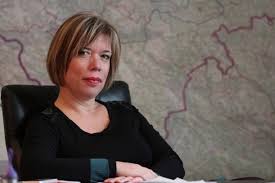
Access to a bank account helps fight poverty
The online service of the World Bank reported that between 2011 and 2014, 700 million people became account holders at banks, other financial institutions, or mobile money service providers, and the number of ‘unbanked’ individuals dropped 20% to 2 billion adults.
This information is contained in a new report released earlier this week.
“Access to financial services can serve as a bridge out of poverty. We have set a hugely ambitious goal – universal financial access by 2020 – and now we have evidence that we are making major progress,” said World Bank Group President, Jim Yong Kim.
“This effort will require many partners, credit card companies, banks, micro credit institutions, the United Nations, foundations, and community leaders.
But we can do it, and the pay-off will be millions of people lifted out of poverty,” he added.
Between 2011 and 2014, the percentage of adults with an account increased from 51% to 62%, a trend driven by a 13 percentage point rise in account ownership in developing countries and the role of technology.
In particular, mobile money accounts in sub-Saharan Africa are helping to rapidly expand and scale up access to financial services. Along with these gains, the data also shows big opportunities for boosting financial inclusion among women and poor people.
The findings come in the latest edition of the Global Findex, the world’s most comprehensive gauge of progress on financial inclusion.
Financial inclusion, measured by the Global Findex as having an account that allows adults to store money and make and receive electronic payments, is critical to ending global poverty.
Studies show that broader access to, and participation in, the financial system can boost job creation, increase investments in education, and directly help poor people manage risk and absorb financial shocks.
The 2014 Findex found there is still more work to be done to expand financial inclusion among women and the poorest households. More than half of adults in the poorest 40% of households in developing countries were still without accounts in 2014.










































